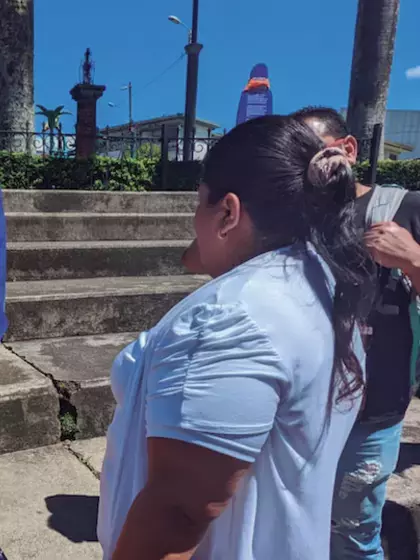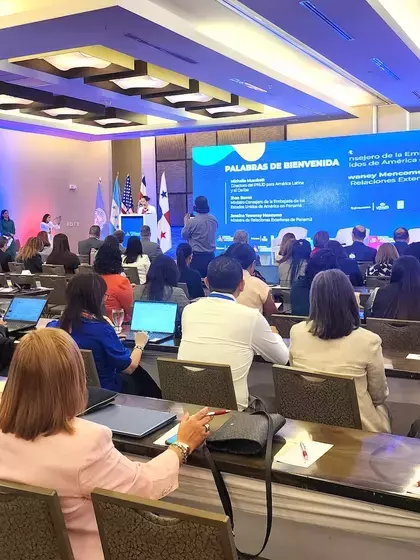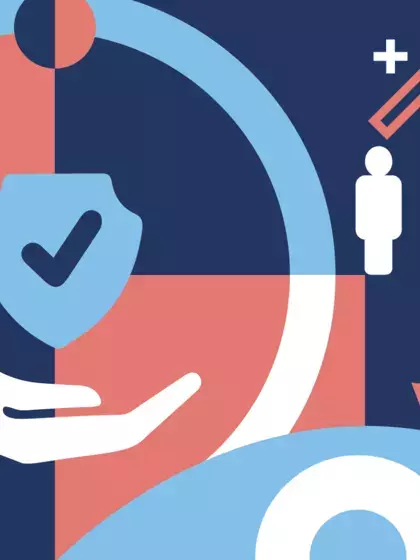Ending violence against women also involves men
Gender-based violence is not a “problem for women.” This is a problem for all of society, and it cannot be up to women alone to put an end to this pandemic. Man is the natural ally, but also responsible for the vast majority of acts of violence against women and girls. Men must take a leading role, sharing in the responsibility and engage actively.
In the context of the 16 Days of Activism starting November 25, International Day for the Elimination of Violence against Women, and ending on December 10, International Human Rights Day, United Nations Agencies raise our voices one more year to eradicate this scourge under the rallying cry “UNITE! Invest to prevent violence against women and girls.”
As part of this campaign, InfoSegura wants to analyse the role of men as partners in the fight against gender-based violence and see what initiatives have had success in achieving this objective and actively engaging the male gender at the forefront of this struggle.
InfoSegura is a UNDP initiative in collaboration with the United States Agency for International Development (USAID), working for almost 10 years with data. Accurate data is what best reflects the real situation of gender-based violence throughout the region.
In Central America and the Dominican Republic, nine out of 10 victims of sexual crimes are women and girls according to InfoSegura estimates based on official figures from national institutions. Every day in 2021, four women and girls were reported missing in Guatemala. In El Salvador, it was two per day. In 2022, 862 women and girls were victims of femicide/feminicide, despite the 30 per cent drop in offences related to intrafamily violence from 10,178 in 2021 to 7,019 in 2022. Practically one in five women ages 20 to 24 had married before their eighteenth birthday in 2021.
Overall, 736 million women—almost one in three—are estimated to have experienced violence on at least one occasion in their lifetime (30% of women age 15 and older). These assaults are mostly perpetrated by partners or ex-partners, affecting more than 640 million women (26% of the total). Altogether in 2021, this adds up to some 45,000 women and girls—five per hour—put to death by a partner or another family member.
The vast majority of these acts of violence are perpetrated by men. In fact, it is precisely men who, according to the experts, need to be engaged as active allies and agents of change in the prevention of gender-based violence.
In recent years, there has been a rise in efforts to involve the male gender in preventing these kinds of offences. Researchers are assessing the impact these programmes have had, although the evidence available so far focuses mainly on programmes targeting aggressors. There is still much that remains to be learned about the ways men and boys can contribute to women’s safety and gender equity.
One of the first steps men may want to take is becoming informed of the roots and consequences of gender-based violence. This involves a deeper understanding of the ways that traditional gender roles and social norms contribute to this issue and the ways to transform them.
Gerald Mora, Assistant Coordinator of the InfoSegura Regional Project believes, “men can critically examine their own attitudes and behaviour, acknowledging and correcting attitudes that are sexist or controlling. This involves questioning and unlearning patterns of thought and behaviour that contribute to gender-based violence.”

Photo Miguel Bruna in Unsplash.
If 90 per cent of gender-based violence victims in the region are women then there is something wrong with the men and it all starts with education. “Men can educate themselves and others on gender-based violence, its cultural roots and ways of preventing it,” to become effective counterparts, notes Mora, “men’s active and committed engagement is crucial to achieve significant change in society.”
A variety of movements and campaigns have tried to engage men as partners. The UN “HeForShe” campaign for instance has encouraged men to take concrete steps to support gender equality and combat violence. Alberto Garcia is in charge of UNDP projects on gender in the Dominican Republic. His view is that, “awareness campaigns, trainings, etcetera, are effective provided that they are addressed adequately. It is important to know how to explain feminist theory without the individual man feeling personally singled out or accused.
According to Garcia, “violence against women and girls is the result of social inequalities produced by a patriarchal system, that is why men, as part of that patriarchal society, and since the majority are in positions of power and decision-makers, have a fundamental role in transforming patriarchal traditions, culture and attitudes into equitable and respectful relationships and gender equality.”
Small steps towards a very great goal
Every man can change his attitudes and behaviours in daily life. Not necessarily always their own, but being a role model for other men. Actions like rejecting certain types of jokes, censuring harassing attitudes, or welcoming women's opinions or feelings are actions that make of men role models and agents of change.
According to Alberto Garcia, “Violence against women and girls is the outcome of the social inequalities produced by a patriarchal system. That is why men, as a part of this patriarchal society and since they hold the majority of positions of power and decision-making positions, they have a fundamental role to play in transforming patriarchal traditions, culture and attitudes into equal and respectful relations and towards gender equality.”
It is also fundamental for men to effectively intervene in situations of gender-based violence in order to help the victims. This may include alerting the police or even offering emotional support. On behalf of InfoSegura, Gerald Mora stresses that men should “intervene safely and effectively when they witness or learn of cases of gender-based violence.” He also notes that, “it is important that men report abusive behaviours or that they participate in intervention programmes.”
On occasion, activism in defence of gender equality has been disparaged in certain sectors. Men's participation in these groups, as well as a constant economic contribution to their maintenance, are essential to strengthen associations in the fight against gender-based violence.
In this sense, Garcia emphasizes, “gender=based violence not only affects women: it affects families, it affects companies, it affects communities and, therefore, it affects society as a whole, including men as well.”
“In order to eradicate it,” the UNDP expert concludes, “men need to be protagonists in a process of reflection and deconstruction of the male gender role into a masculinity that is positive, non-violent, respectful and egalitarian.”





